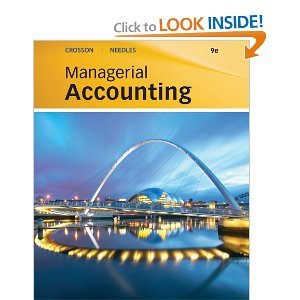Question
You recently overheard the following conversation between two senior auditors working at Cartman, Simpson, and Griffin LLP: Peter Parker: Its impossible to know the needs
You recently overheard the following conversation between two senior auditors working at Cartman, Simpson, and Griffin LLP:
Peter Parker: "Its impossible to know the needs of all the users of a company's financial statements. For example, how - or even why - should I know that a labor union or a bank might use the financial statements of a company I am auditing?"
Pepper Potts: "You have to know the needs of those users; otherwise, you cannot determine whether the accounting for a particular transaction might be material for a user"
Peter Parker: "Well, I can't know them all, so l'Il concentrate on the primary shareholders as bank lending officers. They're the most important. Besides management makes the decision as to what constitutes fair presentation. I'm merely auditing their financial statements. People sometimes just expect too much from us auditors."
Pepper Potts: "True, people do expect too much from us. I don't want to be called to the court for not meeting all users' needs. However, it is difficult to understand all users' needs. Besides, each stakeholder group seems to want different things, and you can't meet them all. If profits are high, labor would want higher wages, and the tax authorities want more taxes. And management would want to keep reported profits down. I guess we just have to rely on Canadian Generally Accepted Accounting Principles (GAAP) and as long as the client follows Canadian GAAP, we can assume it meets user needs."
Peter Parker: "Now you've finally said something I can agree. I do struggle at times keeping up with the requirements of the auditing standards. Besides, most of it is common sense. As professionals, we will always be skeptical, structured, and systematic. Why can't we simply just do our work, issue the report, and move on to the next job? This whole in-depth documentation, formal risk assessments, quality assurance, etc. is not only cumbersome, but also inefficient for a lot of our smaller clients."
Pepper Potts: So true. I'd rather simply validate that the client complies with Canadian GAAP and as long as I am satisfied, we should just issue the report and wrap-up the audit. What good is our formal degree and CPA certification, if we don't even have the flexibility and freedom to do our work on our own without anyone looking over our shoulders?"
Question 2 (5 points)
Explain the concept of expectations gap and need for diligent documentation to Peter.
Do you agree or disagree with the Pepper's conclusion that "since it is impossible to gauge all users' needs, the only solution is to rely on Canadian GAAP for fair presentation of financial statements"? Explain.
Step by Step Solution
There are 3 Steps involved in it
Step: 1

Get Instant Access to Expert-Tailored Solutions
See step-by-step solutions with expert insights and AI powered tools for academic success
Step: 2

Step: 3

Ace Your Homework with AI
Get the answers you need in no time with our AI-driven, step-by-step assistance
Get Started


